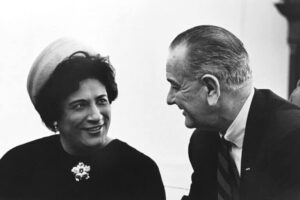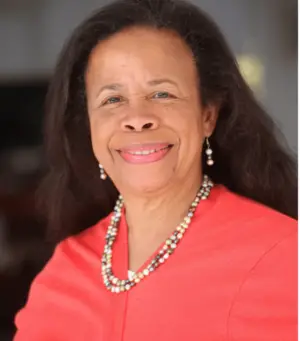Greenwich Historical Society celebrates Black History Month with three events

Photographs courtesy the Greenwich Historical Society.
The Greenwich Historical Society marks Black History Month with three events that plumb civil rights leaders who have been heralded and unsung.
From 6:30 to 8 p.m. Wednesday, Feb. 7, at the First Presbyterian Church of Greenwich, the society welcomes cultural leader and adviser Constance L. Royster for a look at the life of her aunt, Connecticut native Constance Baker Motley, whose effect on the civil rights movement will be observed by the United States Postal Service (USPS) with a Forever Stamp. Royster’s remarks, presented in partnership with the First Presbyterian Church and the YWCA Greenwich, will be followed by a screening of the film “The Trials of Constance Baker Motley” (2019, 27 minutes) and an audience Q and A. With archival footage and narration in Motley’s own voice, the film tells the story of a leader who met prejudice and danger with elegance and humor.
 At the height of the civil rights movement, Motley joined the NAACP Legal Defense Fund in Mississippi, stunning judges and juries by winning important cases. After the assassination of her friend activist Medgar Evers, she moved to New York and became the first Black female state senator, the first Black woman Manhattan Borough president and, with the backing of President Lyndon B. Johnson, the first Black woman named to a federal judgeship.
At the height of the civil rights movement, Motley joined the NAACP Legal Defense Fund in Mississippi, stunning judges and juries by winning important cases. After the assassination of her friend activist Medgar Evers, she moved to New York and became the first Black female state senator, the first Black woman Manhattan Borough president and, with the backing of President Lyndon B. Johnson, the first Black woman named to a federal judgeship.
Royster has followed in her aunt’s trailblazing path. She was among the first women to attend Yale College when it went coed. For reservations and more, click here.

On Wednesday, Feb. 14, from noon to 3 p.m., the historical society and the League of Women Voters of Greenwich invite area residents to join a national transcribe-a-thon to mark Douglass Day and the birth of Frederick Douglass, whose activism and legacy remain influential today. Organized by The Center for Black Digital Research, the event features thousands of people nationwide creating new, freely available digital resources on African American history.
Participants in Greenwich will help transcribe all 8,731 pages of Douglass’ correspondence from the Library of Congress in one day, including letters from and about Douglass to family members, activists, politicians and organizations before and after his death in 1895; his diary; family papers; newspaper clippings; a handwritten partial draft of “The Life and Times of Frederick Douglass”; speeches; articles; and more.
The three-hour program includes a presentation on Douglass’s legacy and dramatic readings from a speech Douglass made about Black activism. The program will be live-streamed. For reservations and more, click here.
On Leap Day, Feb. 29, from 6 to 7:15 p.m. via Zoom, it’s the “Shining a Light Lecture: African American History in Connecticut with Jeffrey Fletcher.”
Fletcher, founder of Stratford’s Ruby and Calvin Fletcher African American History Museum, will kick off the first in a series of the historical society’s annual “Shining a Light” lectures with a discussion of the various artifacts in the museum’s collection and their related historical contexts across periods of slavery, civil rights and ongoing efforts for equity today.
His presentation will include highlights of the museum’s exhibit “Images of America/Challenges of the Badge,” which offers insights into what motivated the trailblazers who forged the way for equality and freedom for African Americans today. Designed to travel, the exhibit reminds Americans never to forget the violence and racial injustice that are a major part of the country’s history.
For reservations and more, click here.